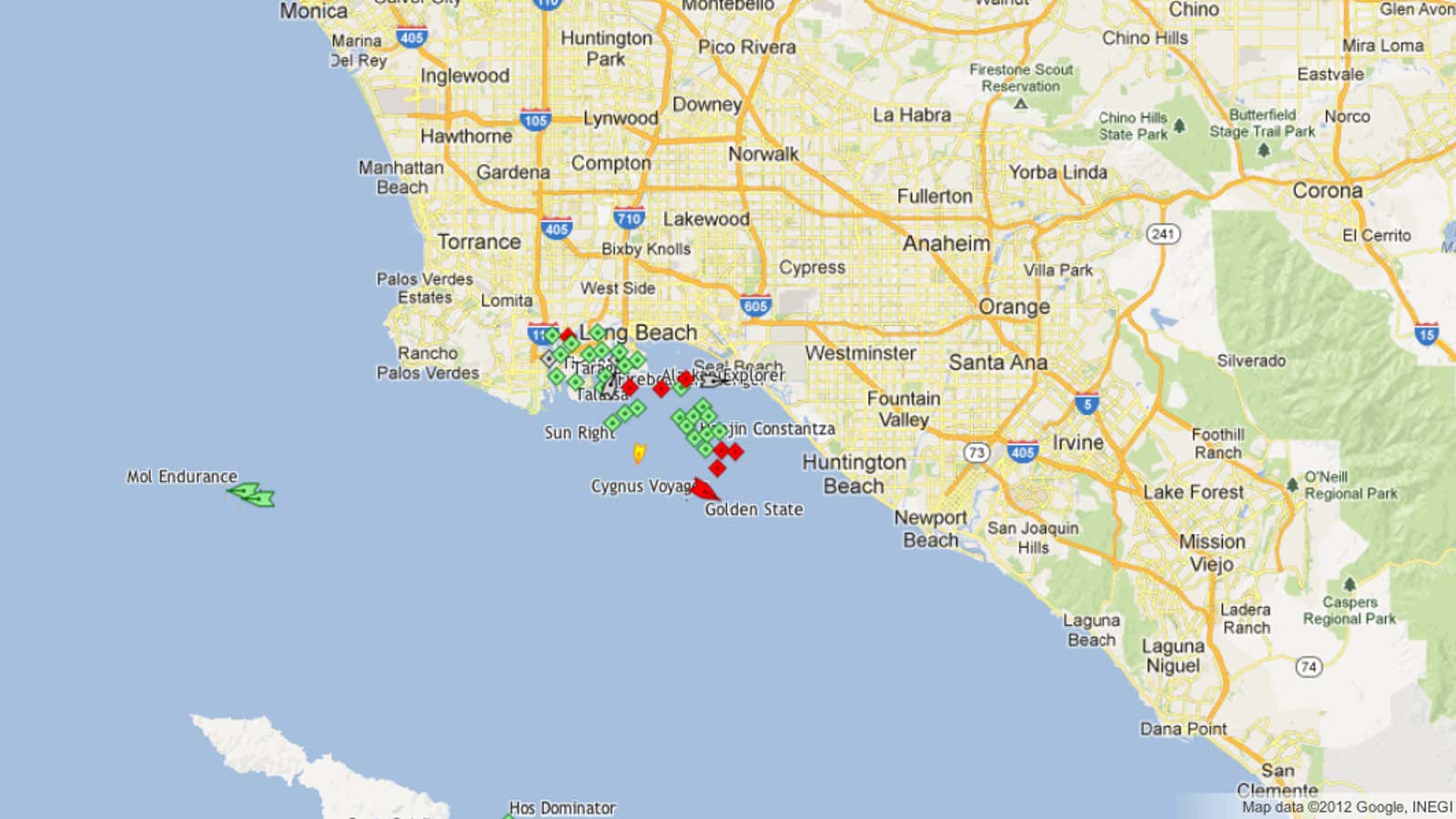Strikes at the ports of Los Angeles and Long Beach, which collectively handle nearly 40% of US container imports, have left the normally busy ports almost entirely shut down since workers of the International Longshore and Warehouse Union (ILWU) began striking last week. The two ports saw a collective 14 thousand TEUs (20-foot equivalent units, the standard measure of container traffic) in 2011, making them North America’s first- and second-largest ports, respectively (pdf).
About 800 clerical workers protesting changes to the kinds of work that were classified as union jobs walked off the job November 27. Some 10,000 longshoremen, also part of the ILWU, refused to cross the picket line. That’s left 10 out of the ports’ 14 container terminals closed. The strike as a whole affects an estimated 1 in 20 regional workers by cutting off $1 billion in daily cargo.
The National Federation of Retailers has begged President Barack Obama to put an end to the strikes, calling the situation a “national emergency”:
The shutdown is already having a significant negative economic impact on retailers trying to bring in merchandise for their final push for holiday sales and will soon have an impact on consumers. The work stoppage not only impacts retailers, but is also affecting their product vendors—many of which are small businesses—and other industries like manufacturers and agricultural exporters that rely on the ports. As the debate in Washington continues to focus on the state of the American economy and relief for middle-class consumers, a protracted strike will ultimately result in higher prices at the very time we can least afford it. This strike is now at the national emergency stage impacting industries far and wide.
Although it’s a crucial season for the country’s retailers, the port closures could have been timed a lot worse. Most major retailers have already stocked up on the goods they’ll need through the end of the year, so their sales now depend more upon domestic movement of goods than container ships moving across the Pacific Ocean.
But the strike could have a significant effect on the prestige of Los Angeles and Long Beach as a hub. Shippers have already begun to divert some of their ships to other ports in the region. As of yesterday, 11 freighters had already decided to change course and set out for other ports in Mexico, Panama, and California. Five more container ships are due to arrive today (pdf) according to the Marine Exchange of Southern California, but it’s unclear if those plans will change as the strike continues.
